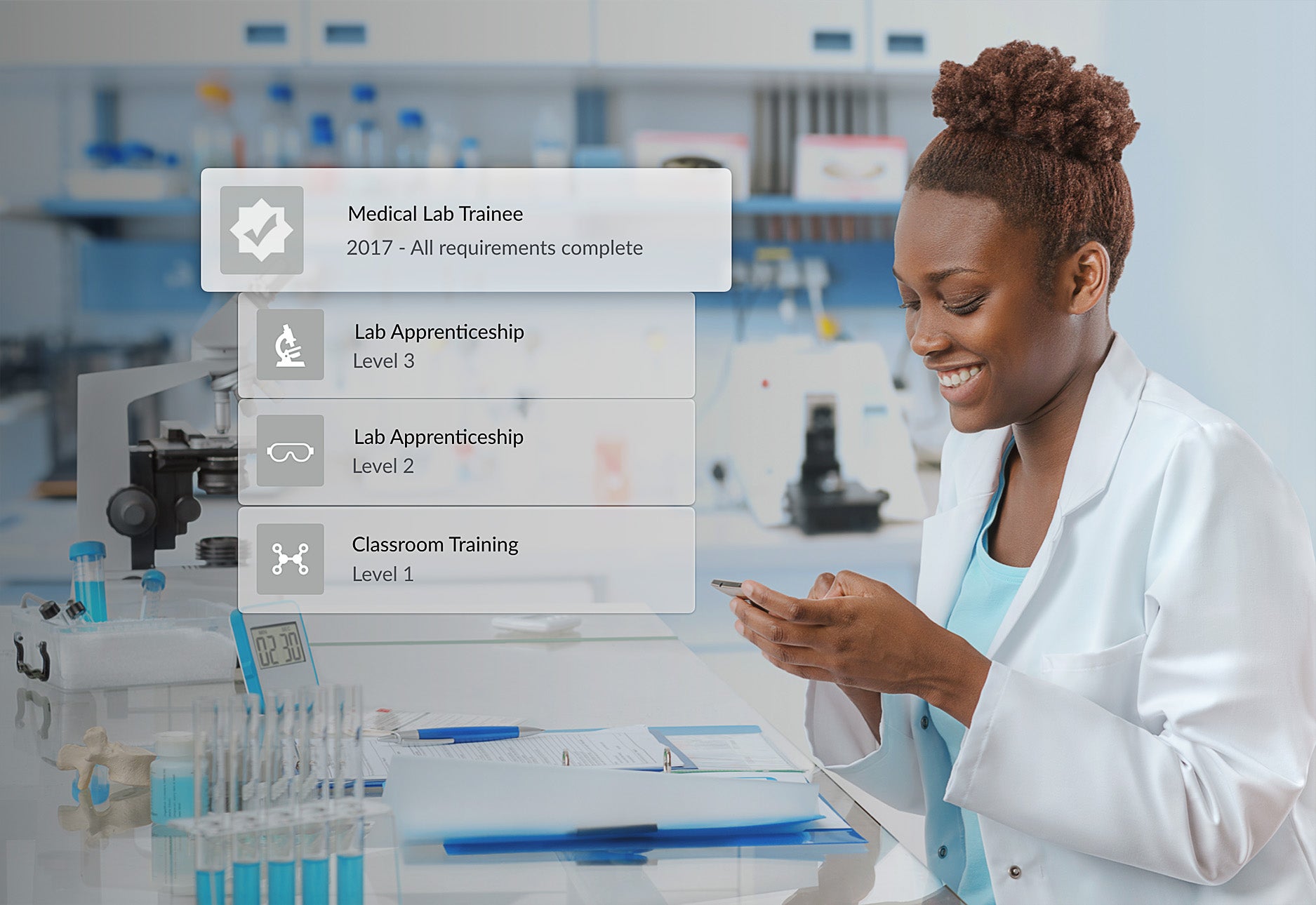By Fernando Pavón
The automated verification of qualifications and skills is here!
Can three global industries—Maritime, IT/Telecom, and Medical Services— make up a world-class workforce? Can technology be used to carry out this endeavor? The Bahamas is embarking upon this ambitious project, connecting Bahamian talent through the national apprenticeship program, spearheaded by the Government of The Bahamas with financing and technical support from the Inter-American Development Bank.
By the end of 2019, the national apprenticeship program, will have established three Sector Skills Councils for these industries, through which employers will take an active role in identifying skills needs, setting occupational standards, and defining curricula for training programs.
The question remains, however: once the best people have been trained, how can employers easily find them and verify their skills? This is where blockchain technology steps in.
What is Blockchain?
Blockchain is a new digital technology that has been making waves all over the world in recent years. You can think of it as a ledger of transactions that are grouped together in a “block” and then “chained” to the previous block of transactions, and so on, all the way back to the very first block. Blockchains are a powerful innovation in data storage because not only are the transactions unchangeable once they are written to the chain, but a full copy of the whole chain is hosted on “nodes” all around the world.
This means that there is no centralized “honeypot” that a hacker can target to steal the data, edit it, or take it down. If one node goes down, all the other nodes have full copies of the chain and can be used to verify any transaction. Also, blockchain data is not human-readable; what is stored instead is a “digital fingerprint” that can be used to verify a transaction but not decode what it is.
Blockchains were first used to record transactions of digital money—cryptocurrency—but since those early days, they have been adapted to transfer any digital asset. These assets include official records like land titles, government ID’s, health records, academic degrees, and professional certifications. Blockchains are also ideal for supply chain management, tracking shipments of goods—in the case of one recent case study from a global grocery chain, down to each individual mango! —all the way from source to final destination. The efficiencies and security benefits provided by blockchain technologies are unlike anything the global economy has seen.
In other words, if you’re an employer who needs to verify that an applicant has the skills they claim to have, the most secure and easy-to-use proof you can receive is a blockchain certificate.
Blockcerts: Open Blockchain Certificates
Blockcerts, the first global, open-source format for issuing, receiving, and verifying blockchain certificates, were built for a global workforce that needs to move between jurisdictions and seamlessly prove who they are and what they can do. Developed by the MIT Media Lab and Learning Machine in 2016, its use is free for anyone seeking to build their own software for issuing and verifying blockchain certificates.
How can Blockcerts be used?
Workers:
- “Stack” blockchain certificates: so that over time they add up to higher levels of skill and credentials
- Blockcerts wallet: private portfolio of Blockcerts from multiple sources
- Instant verification: employers can instantly verify that they completed every step of their training program and check the highest level they have achieved so far
- Automated verification workflows: applicants submit Blockcerts, which are then pre-screened based on authenticity and if they meet minimum criteria for a particular position
Employers:
- Employers can also issue Blockcerts
- Employers can revoke Blockcerts or set them to expire
Apprentices in the Bahamas who track their learning and work experience through Blockcerts can present them locally or in any other country, and employers can verify their authenticity with the click of a button.
In short, blockchain certificates open a world of possibilities for today’s employers. They drastically cut down the work and cost involved in verifying identity, skills, and experience, and allow employers to document workforce development for current employees as they open their doors to qualified applicants from any market. In a few years, it will be difficult to imagine a time before blockchain certificates.
About the author:

Fernando Pavón is a specialist in the Labor Markets and Social Security Division of the Inter-American Development Bank, IDB, based in Jamaica. Since his beginnings in the Bank in 2004, Fernando has worked in offices in Honduras in supervision / project implementation collaborating with the World Bank as a Junior Professional Associate in the preparation of the country strategy. He also coordinated activities of educational technologies in the Education Division of the IDB in Washington from 2010 to 2012. During 2013-2015, Fernando was in charge of the preparation and supervision of Labor Markets programs in El Salvador. Fernando has a Master in Public Policy from the Maxwell School of Citizenship & Public Affairs at Syracuse University.


Leave a Reply